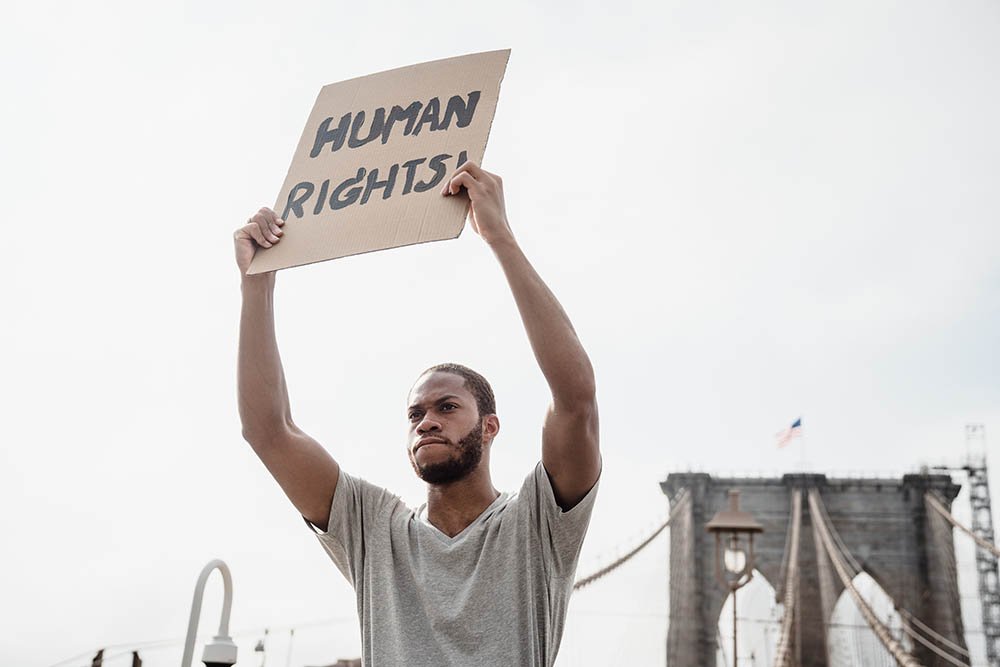Human rights issues related to Christian persecution are still prevalent throughout most of the world. Christian communities are still in danger from violence, prejudice, and restrictions on their right to practice their religion. A diversified strategy is needed to address this problem and guarantee the safety of Christians everywhere. This article will examine five practical solutions to the problem of Christian persecution.
International Diplomacy and Advocacy
Concerning Christian persecution, advocacy and international diplomacy are essential. Governments and worldwide groups must prioritize the issue in today’s linked globe and apply diplomatic pressure to nations where persecution occurs. This entails bringing up the subject in multilateral and bilateral conversations, using their financial and political might to promote reform, and, if needed, enacting penalties to hold persecuting states accountable.
Christian groups like Open Doors and international human rights organizations like Amnesty International have been at the forefront of lobbying activities. They laboriously compile information, record human rights violations, and conduct thorough investigations into claims of Christian persecution. Through prominent campaigns and media outreach, these groups frequently exploit their results to increase public awareness of Christian persecution.
Education and Awareness Campaigns
Being aware and educated as to why are Christians persecuted is crucial for influencing public opinion and rallying support for impacted communities. Online and offline educational efforts effectively raise awareness of the problem, its underlying causes, and its wide-ranging effects. Individuals and groups worldwide may become passionate advocates for change by educating others about the scope of the issue and the severity of the human rights abuses experienced by Christians.
Informing members and communities about Christian persecution is crucial for pastors, heads of churches, and Christian organizations. They can draw attention to the suffering of persecuted Christians and stress the value of religious freedom for everyone through sermons, conferences, and workshops. Another important element of awareness campaigns is to promote interfaith communication and collaboration. These efforts attempt to dispel preconceptions and prejudices, eventually encouraging tolerance and respect through creating understanding and unity among various religious communities.
Legal Protections and Legislation
Christian persecution must be addressed by enacting and upholding legislative protections for religious freedom. Creating and enforcing legislation protecting the rights of faith-based minorities, especially Christians, requires government initiative. This includes thorough legal protections against violence, discrimination, and limitations on one’s ability to practice one’s religion.
It is crucial to ensure that legislative safeguards are in place to protect religious minorities from retaliation in nations with sizable Christian populations. Additionally, it is essential to uphold international human rights accords like the International Covenant on Civil and Political Rights and the Universal Declaration of Human Rights. Advocates can push governments and politicians to defend religious freedom using these international accords as a base.
Support for Persecuted Christian Communities
Direct assistance is essential for the survival and well-being of persecuted Christian communities. Humanitarian help, legal support, and active lobbying for the rights of dispersed or disadvantaged Christians are just a few examples of how this support could appear. NGOs and humanitarian groups are essential in providing aid to individuals in need by taking care of urgent needs, including food, housing, and healthcare.
Legal assistance for Christians who are the target of prejudice or persecution is also essential. The pursuit of justice and accountability for the harm suffered by victims can be aided by legal advocacy. Furthermore, advocacy campaigns for dispersed or oppressed Christian groups may highlight their predicament and draw attention to it from a global perspective. This elevated profile frequently results in more support, security, and diplomatic pressure on persecuting nations.
Interfaith Dialogue and Collaboration
Christian persecution may be effectively addressed by fostering interfaith cooperation and discussion, especially in areas with a mix of religious people. Promoting mutual respect and collaboration among various faith communities may ease tensions and promote peaceful cohabitation.
Interfaith initiatives include group community projects, discussions on religious tolerance, and creating procedures for resolving disputes. Religious groups may create bridges and cultivate a feeling of common humanity by participating in events encouraging respect and understanding amongst people of different faiths. These initiatives also work to dispel the myths of religious fanaticism that frequently encourage persecution, fostering a more inclusive and peaceful community.
Conclusion
A worldwide, national, and local effort must be organized to address the problem of Christian persecution. It is possible to achieve substantial strides in the fight against Christian persecution through diplomatic efforts and campaigning, education and outreach campaigns, legal safeguards, assistance for persecuted groups, and interfaith dialogue. It is imperative to remember that religious freedom is a basic human right and that everyone, everywhere, must defend it. This includes people, communities, and organizations.
















